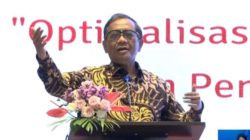By Purwanti Taman (a Lecturer at Faculty of Letter, Universitas Pamulang)
Since the beginning of ASEAN, English has served as the practical official and operational language within its members. This was officially solidified in Article 34 of the ASEAN Charter in 2007, which explicitly declared that the working language of ASEAN shall be English. However, there have been challenges to the status of English as the exclusive official language.
During his official visit to Indonesia, the Prime Minister of Malaysia, Dato’ Sri Ismail Sabri Yaakob, made a significant statement about the importance of strengthening the role of the Malay language as an intermediary language between the heads of state of Malaysia and Indonesia, as well as its role as the official language of ASEAN. This statement carries significant implications, particularly in the context of fostering cooperation and integration among the member countries of ASEAN.
Malay, known as Bahasa Malaysia in Malaysia, serves as the official language in both Indonesia and Malaysia. Enhancing the prominence of the Malay language in facilitating communication between the leaders of Malaysia and Indonesia, as Yaakob emphasized, could effectively streamline bilateral dialogues and collaboration. Additionally, as the official language of ASEAN, Malay plays a vital role in facilitating communication among the diverse member nations that encompass a wide range of languages and cultures.
ASEAN, the Association of Southeast Asian Nations, comprises ten member countries within Southeast Asia. The adoption of a language understood by all member states can greatly expedite diplomatic processes, negotiations, and cooperative endeavors.
Efforts to bolster Malay as an intermediary and official language of ASEAN may encompass initiatives to promote the language in educational settings, its use in official meetings, and garnering support from both Malaysia and other member states within ASEAN to reinforce its role within the regional context. This approach is poised to enhance bilateral relations and strengthen regional collaboration within ASEAN.
However, it is noteworthy that even though Indonesian and Malaysian are dialects of Malay, the Indonesian government maintains its stance on prioritizing Indonesian as an ASEAN language. The government has dismissed Malaysia’s suggestion to elevate the Malay language as an official language within ASEAN, proposing Bahasa Indonesia as a more fitting choice. Calls to broaden the official languages in Southeast Asia beyond English have been regularly discussed before as ASEAN member nations aim to strengthen a “common identity” in their collective community-building efforts. However, finding a suitable common language would need to consider the region’s diverse cultural heritage and history as a melting pot of various cultures.
As Indonesian citizens, we express our disagreement with the proposal that prioritize Malay as official language of ASEAN. Nevertheless, since our friendly neighboring countries have expressed their desire to advocate for Malay as the official language of ASEAN, it is only prudent that this aspiration undergoes thorough examination and in-depth discussions at the regional level. Simultaneously, we must rally the entire community to work in harmony with the government to continue the promotion and protection of the Indonesian language.
This position is not arbitrary, and it is underpinned by a comprehensive rationale. Indonesian’s priority is based on its historical, legal, and linguistic merits. Internationally, Indonesian stands as the predominant language in Southeast Asia, with a presence spanning across 47 countries worldwide. The Indonesian Language Learning for Foreign Speakers (BIPA) is currently offered by 428 institutions. These programs are conducted both under the auspices of the Ministry of Education and Culture’s Language Development and Development Agency and independently by BIPA advocates, governments, and institutions worldwide. Furthermore, Indonesian is taught as a subject at prestigious universities in Europe, the United States, Australia, and several leading institutions in Asia.
Given the historical, legal, and linguistic advantages of the Indonesian language, as well as its international recognition, it is fitting for Indonesian to occupy a prominent position, and ideally, to become the language of instruction for official ASEAN meetings.
Indonesian’s lexicon has evolved through the incorporation of vocabulary from various foreign languages, including English, Dutch, and others. Additionally, Indonesian has benefited from the diverse regional languages spoken within Indonesia, such as Javanese, Sundanese, Madurese, Banjarese, Papuan, and many others.
Research by ethnologists, as of December 2021, showed that there are approximately 199 million Indonesian speakers, significantly surpassing the number of Malay speakers, which stands at 19 million. While Malay and Indonesian share linguistic ties, they exhibit notable differences, particularly in their writing systems. These distinctions are substantial, and this complexity in the development of the Indonesian language is not mirrored in languages from other countries, such as Malaysian.
The foundation of Indonesian language development can be traced back to the Youth Pledge event on October 28, 1928, and its formal adoption as a state language in the 1945 Constitution (UUD) on August 18, 1945. It is worth acknowledging that Indonesian originates from Malay but has progressed far beyond its Malay roots. Since Indonesian attained the status of a state language, its lexicon, dictionary, spelling, and grammar have continued to evolve to reach its current state.
The Indonesian language’s role has been substantiated by legislation and legal regulations. Following Indonesia’s independence, Article 36 of the Constitution of the Republic of Indonesia firmly established Indonesian as the State Language.
The status and function of the Indonesian language have been underscored in the Republic of Indonesia Law Number 24 of 2009 concerning the Flag, Language, National Emblem, National Anthem, further detailed in Government Regulation Number 57 of 2014, which addresses the development, enhancement, and protection of languages and literature, as well as the improvement of the Indonesian language’s role. Moreover, Presidential Regulation Number 63 of 2019 articulates the utilization of Indonesian, complemented by Minister of Education and Culture Regulation Number 42 of 2018, which outlines the National Language and Literature Policy.
On the other hand, Malay in the context of Indonesia is one among 718 regional languages. When Malay is mentioned in Indonesia, it is typically viewed as a regional language. According to data from Lembaga Bahasa, there are 87 dialects of Malay within Indonesia. Therefore, the proposition of strengthening the Malay language is not aligned with the linguistic landscape of Indonesia and warrants rejection.
We need to emphasize the importance of Indonesian. This must have support from the people themselves. In fact, the nation’s young generation has now been taught to prioritize foreign languages over learning Indonesian. If this continues, Indonesian could be replaced by other languages because it will lose its native speakers and the dream of making Indonesian an international language will never be realized.
Addressing these challenges requires a concerted effort, a collective awareness, and dedicated work from the government, Lembaga Bahasa, and the entire community. It is imperative to emphasize the significance of the Indonesian language in advancing the nation’s development. This journey commences with a reinvigorated emphasis on the use of Indonesian in daily life and across all domains, ensuring that Indonesian language proficiency is not only instilled in the hearts of foreign speakers but also within the hearts of native speakers. The ultimate goal is to cultivate a sense of national identity tied to the Indonesian language.
Ultimately, for Indonesian to attain international prominence, it is essential to first enhance and refine the language within the eyes of native speakers, the Indonesian people. Subsequently, it necessitates the complete support and awareness of all Indonesians working in unison to advocate for and propagate the Indonesian language, thereby making the aspiration of Indonesian becoming an international language a reality.
The realization of these objectives hinges on the community’s commitment to action. Recognizing the vast opportunities presented by the Indonesian language, we anticipate that the Indonesian people will harness its potential to gain global recognition.










